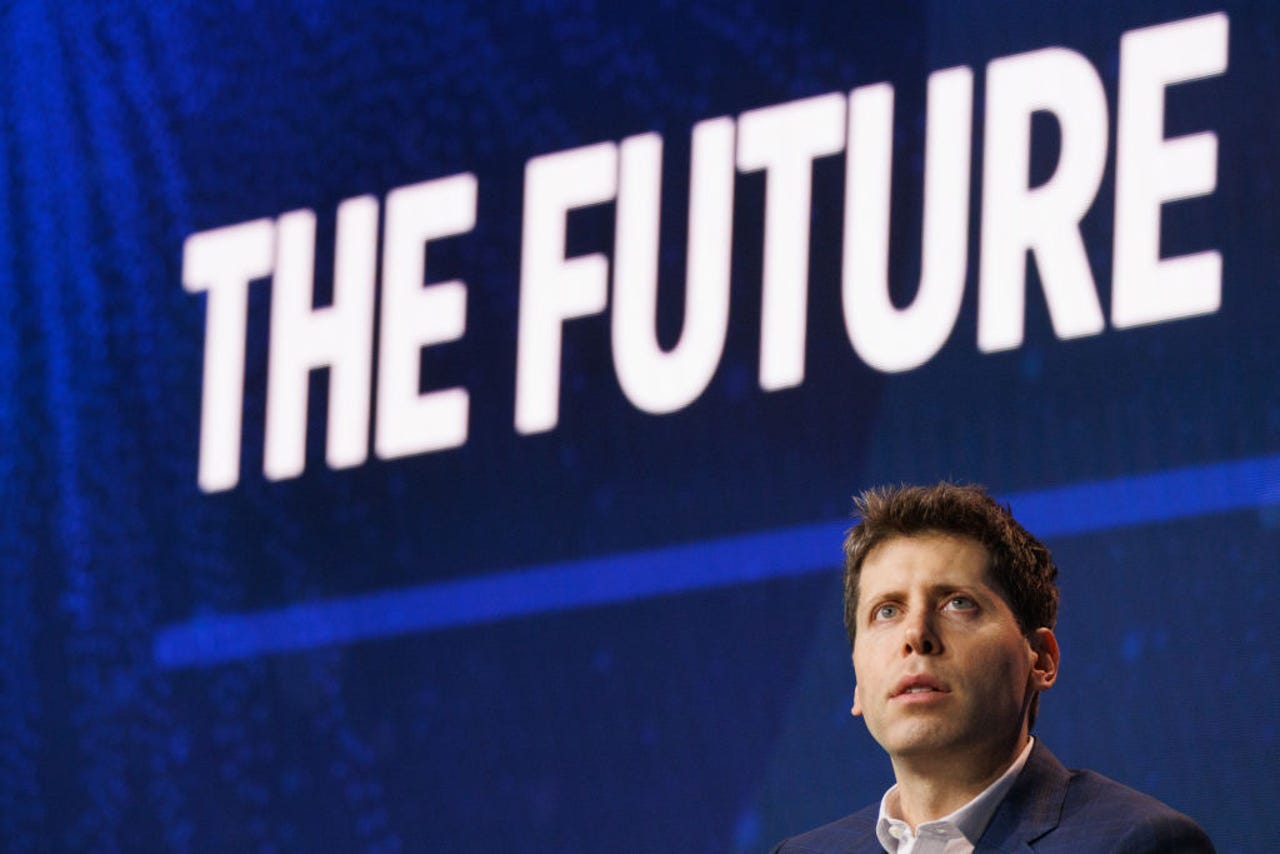
Every time some astrologer, shaman, or random person in the street tells me the world will end on a certain date, I become suffused with skepticism.
If I knew exactly when the world was going to end, I’m not sure I’d walk the streets and tell everyone else. Instead, I’d go off and have the finest experiences I could before the Earth’s bouncers shut the door for the final time.
Also: 4 ways to overcome your biggest worries about generative AI
Yet here we are, undergoing the sudden onrush of AI, and predictions of imminent doom are all around.
In its enthusiasm, OpenAI — makers of ChatGPT — once fueled the frenzy. Why, it was only last October that OpenAI’s then-CEO Sam Altman mused that AI might well kill us.
“Mitigating the risk of extinction from AI should be a global priority alongside other societal-scale risks such as pandemics and nuclear war,” he offered.
This wasn’t precisely what those already frightened by the prospect of robot rule wanted to hear. It only fueled their fears and weighed down their hearts.
Talking it up, toning it down
Recently, however, Altman — once again the OpenAI CEO — seems to have tempered his tone. Even more happily, he seems to be taking steps to ensure not only our survival but also (what’s left of) our peace of mind.
Why, last week he announced that OpenAI will take steps to make sure that the upcoming US elections won’t be interfered with — by nefarious types using AI to achieve their own twisted ends.
But it was another of his pronouncements that may incite a certain giddiness in doubting, troubled hearts.
Also: How OpenAI plans to help protect elections from AI-generated mischief
Speaking at the World Economic Forum, Altman embraced an odd sanguinity. He said that AI “will change the world much less than we all think and it will change jobs much less than we all think.”
I’m not sure we all think the same things. Why, every time I wake up and cast my bleary eyes upon the news, I often see words and gestures from people who don’t think like me at all.
Still, Altman seems to have embraced many people’s unease about not only what AI might do, but how quickly it might change, or even wreck, their lives.
And he wants you to know it may not be so dramatic.
Embracing your unease
Casting my innate skepticism to the floor for a moment, I’m moved by Altman’s recent public utterances. I’m moved that they differ so much from the ones offered by tech leaders during the first part of the internet era.
Then, the likes of Google and Facebook just wanted everyone out of their way because they were “making the world a better place.”
Because they said so. And, well, they were far too clever for ordinary people to understand what they were doing.
Also: This is why AI-powered misinformation is the top global risk
By contrast, Altman at least expresses awareness that hype and hysteria aren’t necessarily the right notes for today’s ever-shifting opera.
Of course, this might all have a little to do with the prospect of government regulation. Calm your predictions and you seem more reasonable.
It might also have something to do with the reasons Altman was briefly removed from OpenAI by those who were a little less keen on uncontrolled moneymaking.
One can still, though, appreciate his effort and even be slightly startled. Even if, in a subsequent interview last week, he conceded that, as AI becomes more customizable, “that’s going to make a lot of people uncomfortable.”
Also: AI will have a big impact on jobs this year. Here’s why that could be good news
Altman concedes that AI is already an “incredible tool for productivity.” Having used it quite a bit myself — no, not for this column, silly — I concede that its productivity is extraordinary.
However, its productivity in video is far more impressive — and mind-challenging — than its writing ability. Lordy, does ChatGPT write like the fifth-grade-level robot science project of a reclusive, asocial professor!
Come out of your bunker, Archie
As the hype abates, perhaps the practical uses of AI will be judged on their merits. Even the fearful, the creeped-out, and the skeptical might become more calmly aware of AI’s presence, its benefits, and its manifest deficiencies.
We’re headed for interesting times — yes, even more of them — but it’s worth emerging from our bunkers and being interested in what’s occurring all around us without being excessively frightened.
No, that wasn’t a political statement, but I thought I’d see what ChatGPT thought.
Also: Afraid of AI? I confronted it for you and its responses were fascinating
“Is it worth emerging from our bunkers and being interested in what’s occurring all around us?” I asked.
“While I don’t have personal opinions, I can provide some perspective,” began the AI. “Staying informed about what’s happening around you can be important for various reasons. It allows you to make informed decisions, engage in meaningful conversations, and be aware of changes that may impact your life.”
But then it did offer some personal opinions: “Being knowledgeable about current events can also contribute to a sense of community and understanding of the world.”
Ah, that sense of community around current events. Wouldn’t it be wonderful if AI could bring us a little more of that?

